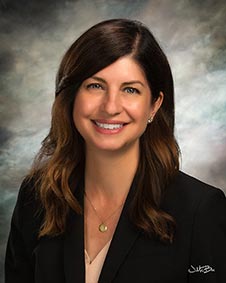What is Population Health?
Population health management is a new discipline in healthcare that has grown out of changes in technology, reimbursement and a focus on prevention and chronic illness management. Population health professionals step beyond the individual focus of traditional public health and clinical medicine. They look at trends and identify factors that impact the health of an entire population. The goal of this holistic approach is to shift people toward healthier lifestyles.
Precision Public Health
Students learn how to work as part of an interprofessional team to shift patient populations and communities toward healthier lifestyles and apply precision public health solutions. The population health curriculum focuses on care coordination, advocacy, public health, social determinants of health, health education, integrated care, health informatics, and policy. The degree prepares students to enter the workforce or to continue their education through graduate work. Students learn to apply research, data, evidence-based practices, and policy to improve outcomes in workplace settings such as healthcare advocacy, care coordination, finance, policy, community wellness, hospital, technology, government, and public health.
Transformational Internships
The population health program requires a 135-hour internship experience. Students work in the community addressing important topics such as:
- Food security
- The opioid epidemic
- Care coordination & patient advocacy
- Maternal & infant mortality
- Chronic illness prevention
- Health education
Why Choose Population Health Management?
The healthcare industry is changing faster than ever before, and now, healthcare professionals are no longer in the industry of managing illness —they are in the business of keeping people healthy. The Missouri Western Bachelor of Science in Population Health Management is a non-clinical healthcare program which reflects the ever-changing healthcare industry with the goals of improving health outcomes and shifting people toward healthier lifestyles. The program prepares graduates to enter the workforce prepared to meet the needs of this changing healthcare environment. You will graduate with valuable real-world experience gained through community-based internships, research and applied learning opportunities.
What can you do with this major?*
- Health Education Specialist and Community Health Worker
- Medical and Health Services Manager
*Source: JobsEQ(R), http://www.chmuraecon.com/jobseq
See what our students are saying:
“I knew immediately it [population health management] was the right path for me so I could help people live healthier lives. And it’s such a growing field, I had a job offer from Cerner before I graduated.”
– Lauren Patton, class of ’16
“My degree in Population Health Management helped me pursue and achieve my personal and professional goals. While searching for my career, my current employer was very impressed by the work I completed in my internship. The knowledge and experience I took from this program helped me gain employment shortly after graduation and prepared me for further education as I continue with my Master’s degree.”
– Katie Dailey, class of 20
Population Health Management program student candidates must meet the following minimum requirements:
- The applicant must apply and be admitted to MWSU.
- The applicant must have a minimum cumulative GPA of 2.0 or higher.
- Completion of MWSU General Studies/Core42 Requirements and Completion of BIO101 Principles of Biology, BIO250 Anatomy and Physiology, ECO261 Principles of Microeconomics with a grade of C or higher.
To be considered for admission into the Population Health Management program contact the Department of Health and complete the following:
- Declare your interest in Population Health Management and make an appointment with the program director
- Complete a major declaration form
- A pre-major declaration is also available for the PHM Program
Recent graduate job titles:
- Business Consultant
- Claims Analyst
- Medical Informatics Liaison
- Community Health Worker
- Clinic Manager
Graduates can expect to find roles with the following types of organizations:
- Hospitals
- Community Service Agencies
- Public Health
- Electronic Health Records Companies
- Wellness Providers
- Healthcare Reimbursement
Courses reflect the changing needs of the healthcare industry:
- Sociology of Health, Illness & Medicine
- Health Data Management
- Health Care Economics
- Epidemiology and Biostatistics
- Population Health
- Care Coordination
- Health Communications
- Health/Stress Management Psychology
Primary Care:
- Clinic Management
Hospital Based:
- Health Informatics, 4th Grade Challenge, Market Research, Community Based Care Network
Other:
- Community Housing and Health
- Public Health
- Electronic Health Record Company

Dr. Fiona Sansone
Endowed Director
fsansone@missouriwestern.edu
Murphy Hall 309
(816) 271-5622

Lauren J. Patton
Adjunct Professor

Dr. L. Corey Sloan
Adjunct Professor
Mapping your degree plan is important. Consult with your academic advisor to create a plan and monitor it regularly.
Click here to learn more about the Fast Track Workforce Incentive Grant.

